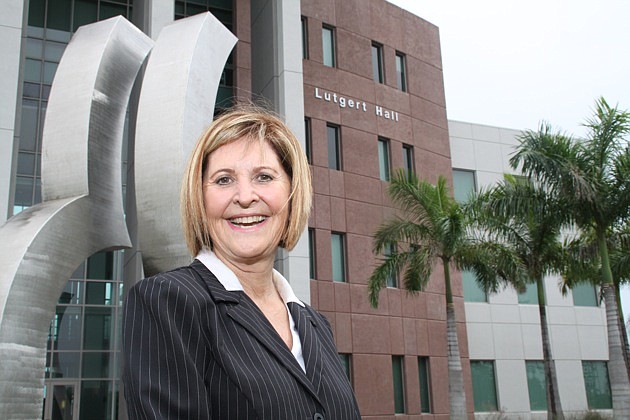- December 15, 2025
-
-
Loading

Loading

Like many entrepreneurs, Sandra King Kauanui learned how to run a business at an early age.
Her father owned a chain of 50 dry cleaners in the Tidewater region of Virginia. “I was doing payroll for 500 employees when I was 14,” she recalls.
Talented in math, Kauanui became a financial planner, building her firm in Virginia Beach to 50 employees in the 1980s. “All my clients were entrepreneurs,” she says.
But Kauanui also nurtured a dream since she was a child to become a teacher, so she sold her business and went back to school to earn an MBA and a doctorate in 1997 in organizational behavior, specializing in family businesses and entrepreneurs.
After teaching a family business course for several years at California Polytechnic State, Kauanui joined the faculty at Florida Gulf Coast University's Lutgert College of Business. She's been the director of the Institute for Entrepreneurship at the university in Fort Myers for about three years.
Kauanui is working to establish mutually beneficial ties with Gulf Coast entrepreneurs and the university. “I can make those links happen,” she says. For starters, she speaks the entrepreneur's language, preferring practical over theoretical applications of research.
And students in her courses help existing family businesses in the area, writing business plans as part of class assignments. “They're working on real, live stuff,” she says.
Kauanui is also busy doing research herself, recently authoring a paper on the relationship between work and play among entrepreneurs. While she and her colleagues didn't find that an increase in play generated a corresponding boost in profits, Kauanui suspects that firms that encourage playful creativity in the workplace are more likely to survive through economic challenges.
“People who love their business will stay in it,” she says, regardless of economic hardships. Kauanui says that an entrepreneur's passion is the first thing venture investors look for before they invest.
The success of many enterprises can be traced to passion and creativity and Kauanui says a playful work environment can foster these. “Creativity is where they got today,” she says.
For many successful entrepreneurs, making lots of money is not the objective. “If it's only about the money, it's drudgery,” she says. One exception is entrepreneurs who grew up poor; for them, making money is a strong motivator.
Kauanui's research has implications for entrepreneurs today who face lousy business conditions. “Unfortunately, we think we have to work harder, longer, better. But, Kauanui says, “working another 40 hours a week is not going to save your business.”
Working longer and harder inhibits creativity and people's ability to come up with new ideas, the very things that make entrepreneurs successful. “You take the brain and shut it down,” she says.
Kauanui suggest entrepreneurs ask themselves: “Am I having fun? Am I enjoying this? Am I creating a work space to support creativity?”
If entrepreneurs can't respond to these questions in the affirmative, Kauanui suggests they reevaluate their business. “Start with what is important to you,” she says. “Learn to trust what made you successful initially. It's much more important in periods like this.”